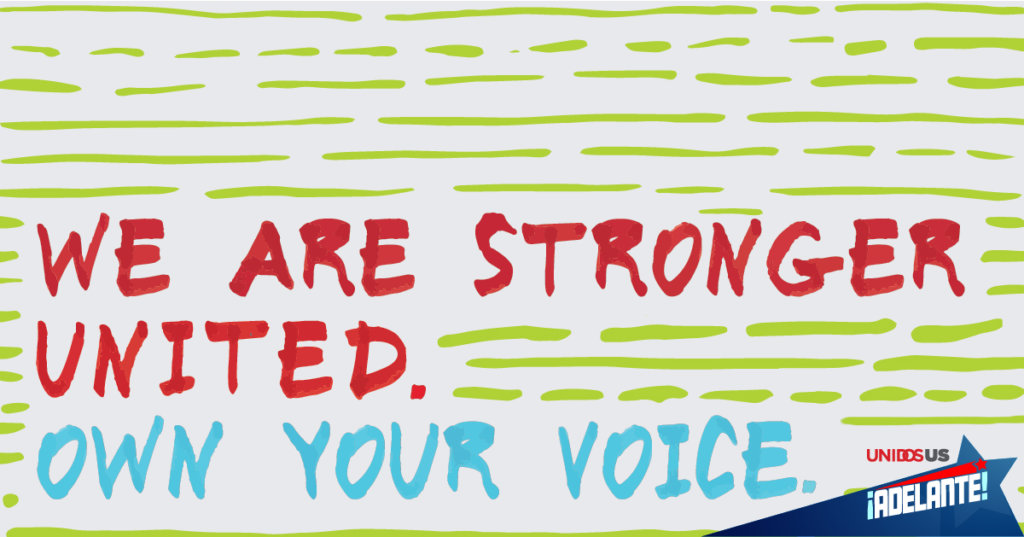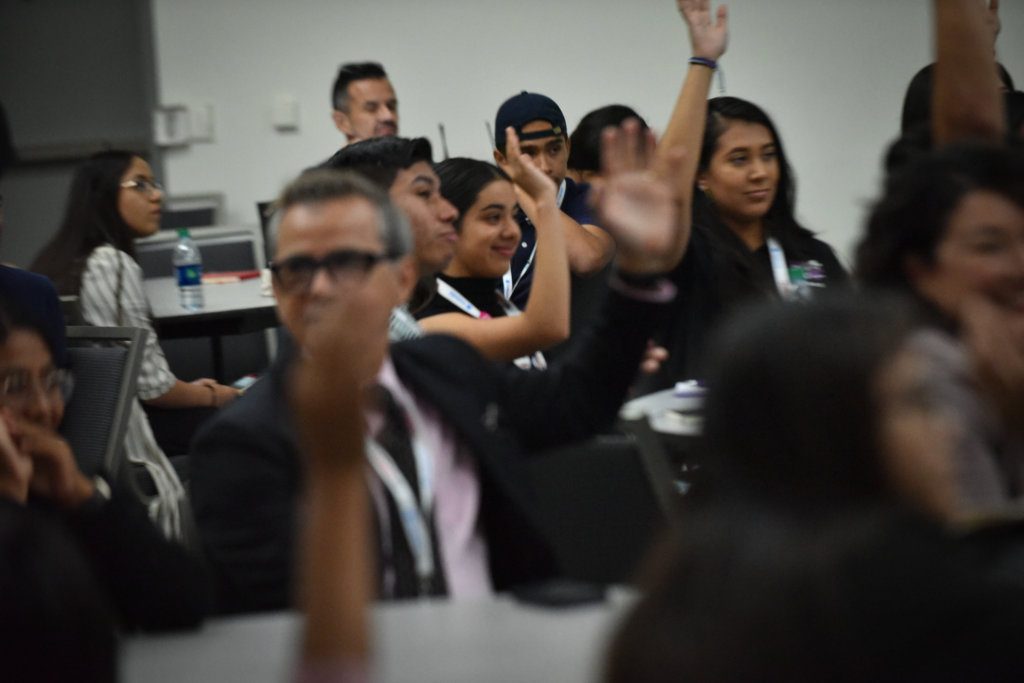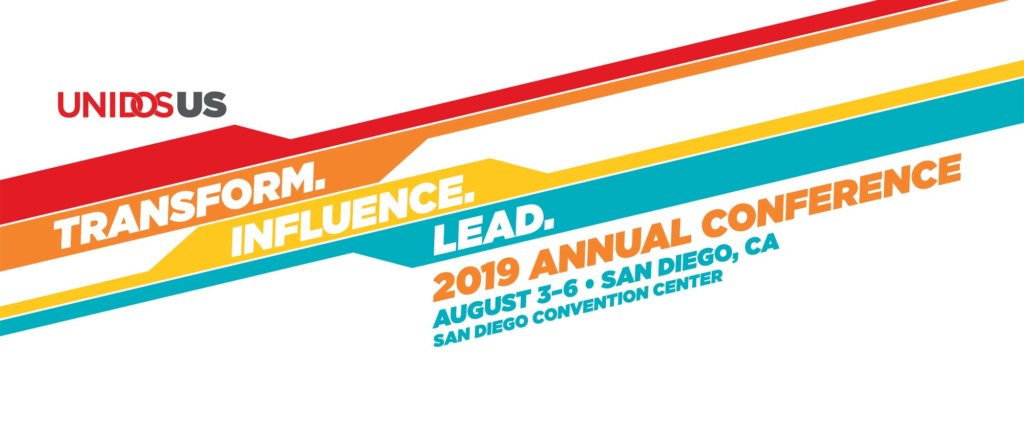Unidos we stand: How the civil rights movement can fight back in the Trump era
The civil rights and advocacy movement is in one of its most difficult periods since the 1960s. Every day, we are flooded with news of the action that this administration is taking against our community—whether it be attempting to cut crucial safety net programs that lift Latinos out of poverty to the news of the separation of families at the border.
“Today, the sobering truth is that we face a president who wants to pit us against each other, who thrives on it,” said Neera Tanden, President and CEO of the Center for American Progress, during a panel at the 2018 UnidosUS Annual Conference Monday Luncheon. The session featured a historic gathering of several of the top leaders in the civil rights and advocacy fields who represent a wide array of communities in the movement.
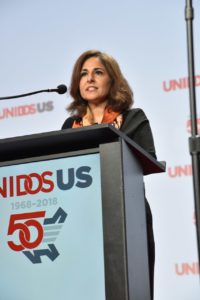
A THREAT TO OUR PROGRESS
UnidosUS was founded as the Southwest Council of La Raza in 1968—in the heyday of the civil rights movement. We are no strangers to fighting for progress, even in difficult circumstances. Now that we’re in our 50th year, we’re looking back at the progress we’ve made, and the progress we have yet to make. In this difficult time, it’s even more important than ever to examine the path forward we want to take to achieve progress for our community.
“What progress we have made is being threatened like never before,” said Sherrilyn Ifill, President and Director-Counsel of the NAACP Legal Defense Fund. She noted that Black and Latino Americans face substantial obstacles just getting to the ballot box. “We cannot pretend that there isn’t a movement in this country that is trying to keep African Americans and Latinos from voting,” Ifill added.
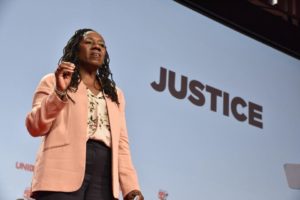
Ifill also noted that the panel was taking place on the 150th anniversary of the 14th Amendment, which established birthright citizenship, equal protection of the laws, and the guarantee of due process. But that while we expect “justice to flow freely,” these protections under law are under attack, even though they were established 150 years ago.
“Justice is, in fact, not inevitable. If you want justice, you have to fight for it,” she added.
HE IS GOING TO KEEP HEARING FROM EVERY SINGLE ONE OF US
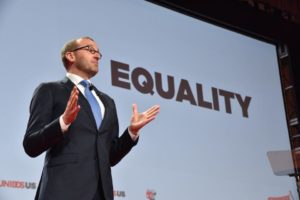
“When Donald Trump attacks one of us, he is going to keep hearing from every single one of us,” said Chad Griffin, President of the Human Rights Campaign. He noted that the LGBTQ community are members of every community across the United States, underscoring that the issues that face one group do not exist apart from other issues.
Vanita Gupta, President and CEO of the Leadership Conference on Civil and Human Rights, explained that while we are seeing daily attacks on our communities, people are stepping up to defend American values.
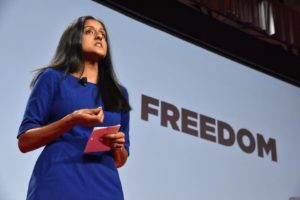
She noted that when—nine days into the Trump administration—the travel ban was announced: “You didn’t see just Muslim people rushing to the airports… this is not about one community. It’s about who we are as a country.”
WHAT CAN WE DO?
Panelists were also asked what the civil rights community can do to continue to push for change across the country, even in the face of barriers.
“What we’ve got to do is keep telling stories,” Griffin explained. He noted that when someone tells their story that it personalizes an issue and helps someone who may not be familiar with the harms a particular policy causes or may cause to understand how it does or would impact people who live in their communities.
Ifill also noted the importance of civic engagement. “Our power is not only in our vote, but in our engagement,” she explained, adding that, “engaged doesn’t mean you come and vote two years later.”
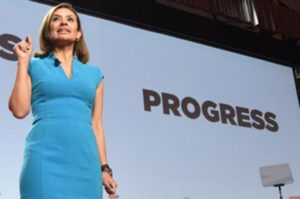
For our community to ensure that we’re being heard at the polls, those of us who are eligible have to vote every time we’re given the opportunity. “Engagement now has to be 24/7, 365 days a year,” added Tanden.
“As they distract, we have to build,” Maria Teresa Kumar, Executive Director of Voto Latino noted of the constant barrage of news coming from the Trump administration. “Too long we’re sitting on the sidelines, waiting for someone to invest in us.”
She went on to explain the establishment political structure is stacked against Latinos. “Right now, the way the establishment is structured, people register just enough Latinos to get their candidate over the top—just enough. By that structure, Latinos will never have the political structure they need.”
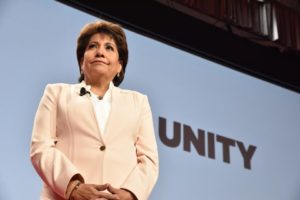
While our communities often have separate needs, Janet Murguía, President and CEO of UnidosUS and the moderator of the panel, noted that: “Our separate struggles are really one—a struggle for freedom, for dignity, for humanity. If there is a bright light in all of this challenge that we’re seeing—it’s that it has created an opportunity for us to come together and leverage our strengths in so many ways.”
By Stephanie Presch, Content Specialist, UnidosUS


